On-Demand Outsourcing BPO Services for Healthcare Providers With 24/7 Coverage!
Save up to 70% on staffing costs!
Browse Specialty Staffing Services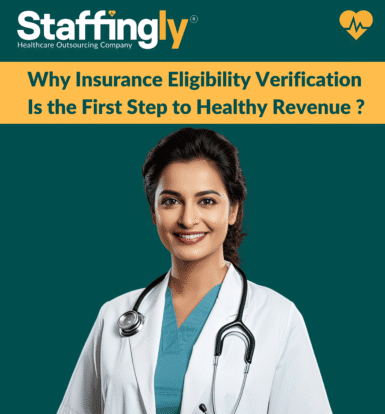
Why Insurance Eligibility Verification Is the First Step to Healthy Revenue ?
Ask any clinic why revenue slips through the cracks, and they’ll usually blame denied claims or coding errors. But the truth is, most of those problems start much earlier at the point of insurance eligibility verification. On paper, it’s simple: confirm coverage before a visit. In reality, skipped or rushed eligibility checks cause denials, delayed payments, angry patients, and a financial mess that could have been avoided. 💬 “We had thousands in claims denied just because coverage wasn’t verified upfront.”
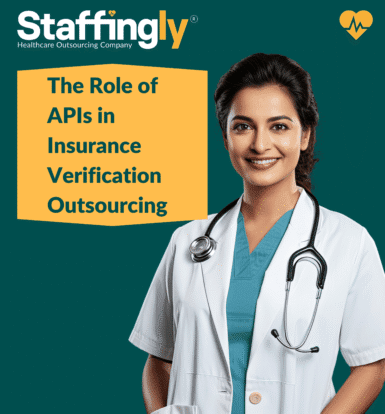
The Role of APIs in Insurance Verification Outsourcing
APIs turn insurance verification from a single EMR ping into a live, reliable workflow. Instead of stopping at active/inactive status, an API-first model pulls payer, network, and member data into a clean, service-specific benefits snapshot tied to the scheduled visit. It auto-rechecks when coverage changes, flags referral and network rules, surfaces COB order, and signals when authorization may be needed. Outsourced teams use these feeds to automate routine checks, escalate true exceptions, and push results straight into your EMR/PM—delivering accurate
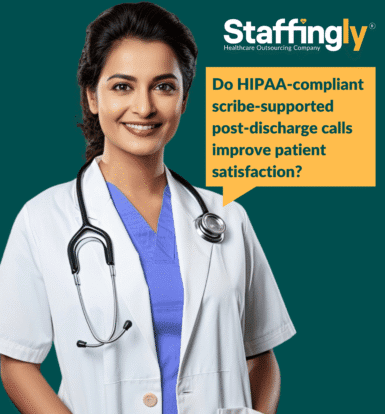
Do HIPAA-compliant scribe-supported post-discharge calls improve patient satisfaction?
After a hospital stay or clinic visit, patients often feel lost, unsure about follow-up care or instructions. Post-discharge calls are a critical touchpoint to bridge this gap, but managing them securely and effectively is a challenge. Can HIPAA-compliant scribes, trained to handle these calls, boost patient satisfaction while keeping data safe? 💬 “I left the hospital confused about my meds, and no one followed up until days later—it felt like they didn’t care.” The answer is yes—scribe-supported post-discharge calls, when
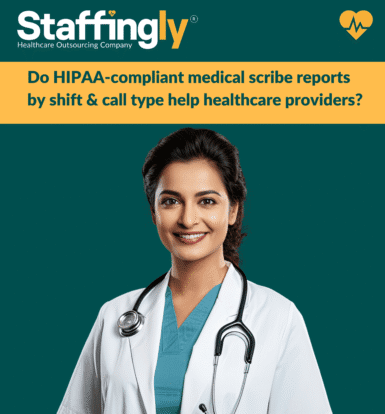
Do HIPAA-compliant medical scribe reports by shift & call type help healthcare providers?
Medical scribes, whether in-house or outsourced, are critical for streamlining documentation and allowing providers to focus on patient care. However, their access to Electronic Medical Records (EMRs) and Protected Health Information (PHI) raises a critical question: How can clinics ensure scribe workflows comply with the Health Insurance Portability and Accountability Act (HIPAA)? 💬 “We rely on scribes to keep our EMRs updated, but we can’t risk a HIPAA violation.” By implementing strict protocols, leveraging secure technology, and partnering with compliant
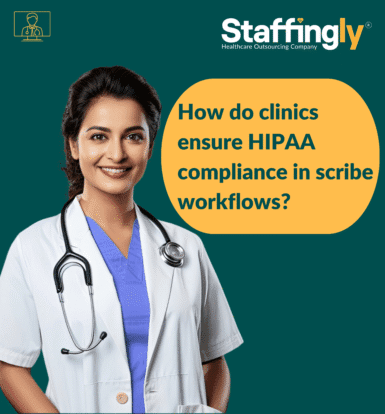
How do clinics ensure HIPAA compliance in scribe workflows?
Medical scribes play a vital role in healthcare by documenting patient encounters, updating EMRs, and assisting with coding. This helps providers focus on patient care. But because scribes work directly with Protected Health Information (PHI), their workflows must align with the Health Insurance Portability and Accountability Act (HIPAA). Without strict safeguards, a single mistake in handling PHI could lead to breaches, fines, and loss of patient trust. Key Takeaways HIPAA ensures scribes access only the minimum necessary PHI. Secure systems,
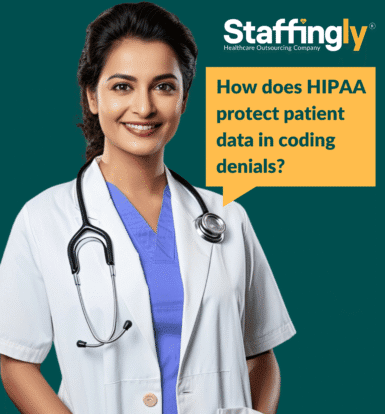
How does HIPAA protect patient data in coding denials?
Medical coding denials are a financial and operational challenge for clinics, but they also pose a significant risk to patient data security. When claims are rejected due to coding errors, sensitive patient information is often shared, resubmitted, or reviewed multiple times, increasing the chance of a data breach. 💬 “A denied claim sent to the wrong payer exposed my patient’s data for days before we caught it.” The Health Insurance Portability and Accountability Act (HIPAA) provides strict guidelines to safeguard
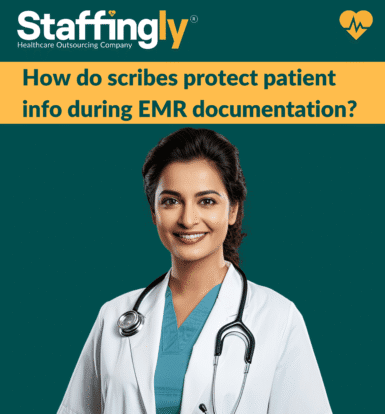
How do scribes protect patient info during EMR documentation?
Patients notice what’s typed, what’s repeated aloud, and who is present in the room. When a medical scribe is part of a visit, in-person or remote, the unspoken question often is: Is my information safe? 💬 “I love that my doctor focuses on me, but who is that person typing, and what do they see?” Scribes help clinicians focus on patients while ensuring accurate documentation. Protecting privacy is essential to maintaining trust, and with the right practices, patient information remains
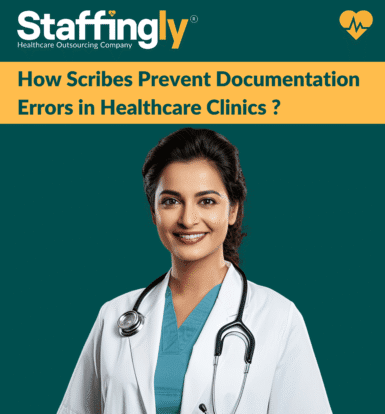
How Scribes Prevent Documentation Errors in Healthcare Clinics ?
In healthcare, a single documentation error can lead to denied claims, delayed care, or even compliance violations. These errors don’t just cost clinics revenue—they also erode patient trust and hinder operational efficiency. Medical scribes play a crucial role in addressing this issue. By handling real-time documentation with precision, scribes ensure accurate records, compliance with regulations, and improved clinic workflows, allowing physicians to focus on patient care instead of administrative tasks. 💬 “A coding error in one chart cost us $5,000
 Book a Demo to Build Your Team Today!
Book a Demo to Build Your Team Today!


 Read Case Studies
Read Case Studies 



 Virtual Medical Assistants
Virtual Medical Assistants



